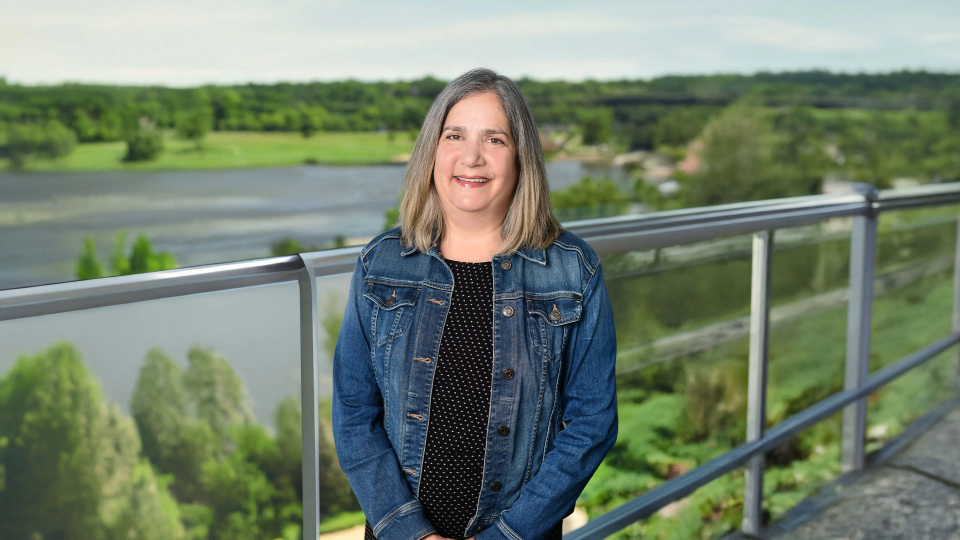
Meet Laurie Fink, William D. Wells Chair of Science and Senior Director of the Center for Research and Collections
What does bold science mean to you?
Bold science means that we aren’t apologetic about science. We are a science organization; we trust the scientific process, and we know that process helps us discover new things about the world we live in. Being bold with science means not hiding behind it. It means looking at the information we have, questioning that information and the assumptions we have about it, and pushing it to new heights so we can keep learning new things.
What makes you proud to work at the Science Museum of Minnesota?
We not only discover new things about the world, but we make science, technology, engineering, and math (STEM) relevant to everybody. We get people excited about science, and that is something that I’m really passionate about; I want everyone to see themselves as a scientist, whether they are trained as a scientist or just curious about our world. We all benefit from science and STEM knowledge.
When I’m at a party and people say “You work at the Science Museum? That’s so cool!” I’m reminded of the excitement and strong reputation, which helps keep me going every day.
In summary, we do science and we make that science relevant to everybody.
How does your role at the Science Museum play a part in combating climate change?
As an informal science educator, I can help people think about the information that they learn about climate change and translate it to be relevant to their own lives. As the Chair of Science, I can inform the public about where they can find credible information on the changing climate crisis. Additionally, I can help our researchers stay on track and do very important research about Earth’s climate, while at the same time sharing their findings with stakeholders like policy makers, donors, and the public. Knowledge is only so great if it stays in one spot and isn’t shared with anyone else. Ultimately, I encourage scientists to keep sharing their discoveries.
What are the biggest opportunities for addressing climate change?
We have the tools to make a difference; the biggest challenge is coming together to make big system-level changes. I think that’s a huge opportunity.
If we stop looking at the crisis as a series of small, disconnected steps, such as “Do I use a straw or not?” or “Do I turn off my lights or not?” We need to focus on more systemic changes in our society, and I think that is where the huge opportunities are. It is a good thing to make our houses more energy-efficient, keep our storm drains clean. But until we, as a society, make the way we do things greener and put policies in place to change the way we operate, we won’t see large-scale change.
Thinking about the climate crisis as not just environmental health but animal health and human health are critical. I think a key piece of the puzzle is finding out how these intersecting circles come together and how we address these issues together to really make a difference.